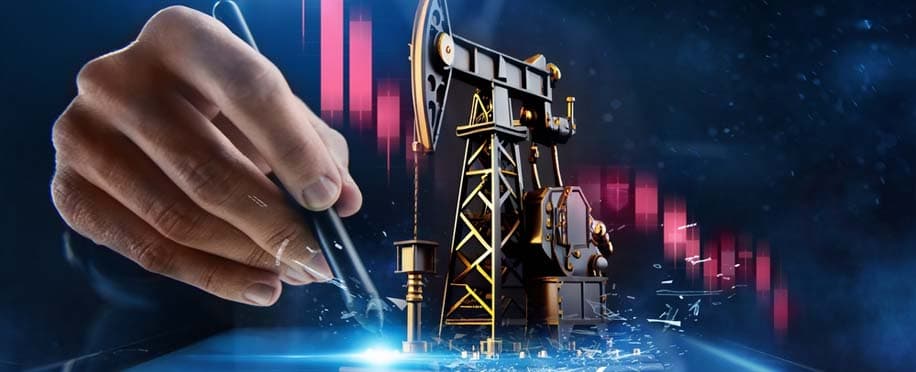Copyright © 2026 lpcentre.com All Rights Reserved. London Premier Centre For Training Ltd Registered in England and Wales, Company Number: 13694538
version: 3.0.1

Posted on : 11/25/2022, 8:25:08 PM
Last Update : 12/23/2023, 7:08:23 PM
Today's petroleum economics and industry affect all spheres of life, certainly closely linked to the international and global economy, as it possesses a lot of factors that help economic advancement, as it is the primary source of cash revenues for balances in many countries, in addition to its role in the development of service and financial sectors.
Recently, a term called " petroleum economics" emerged, serving to explain and study all factors and risks related to the petroleum industry and its various impacts on the lives of people and economies worldwide. To learn more, continue to the end.
It is a set of complex economic and political theories directly linked to the petrol industry; the petrol economy plays a significant role in the country's economy and growth, especially the ones to rely primarily on the petrol and gas industry for its economy, while the country with economic diversity is not much affected.
Recently, the term "petrol economics" dates back to the beginning of the twentieth and late nineteenth centuries, when the industrial revolution began to spread.
It was necessary to examine in depth all aspects of the petrol industry to understand more about the future of this matter. Therefore, many countries of the world have created specialised colleges in the Department of petroleum Economics within their universities and educational institutions to ensure that specialists can study and understand the impact of Risk Management on the Oil & Gas Industry as well as how to better exploit these resources to achieve a strong and durable economy.
The emergence of petrol economics as a single discipline that meets the three basic requirements of any science: subject, objective, and methodology, the three points integrate into a modern science that is included in the list of different sciences with its place of research and studies and taught in a specialised college.
That is, petrol economics is one of the applied topics, which combines theoretical economic theories to the field of thought, and between practical applications of financial processes and activities related to the exploitation of this field.
While the objective of petrol economics is to constantly search for new sources of wealth and to transform them into commodities and products that meet the market's need methodology, economics depends on many approaches to achieve the objective of science, including the extractive, statistical, descriptive, and extractive approaches.

Those are expected to have an acceptable background of global geopolitical history and location and a preliminary knowledge of how to make petrol and gas. They will study various sciences and theories, such as future studies of petrol availability worldwide or environmental costs related to petroleum production.
The petroleum economist is also developing research and applying his research to formulate a new policy for dealing with oil reserves and cooperating with public and private companies to work on new petroleum fields, as well as spreading the petroleum industry culture among people interested in petroleum economics and oil exporting countries' policies.
Alternative or clean energy also has its share in economics studies, the subject of the study of some researchers in petroleum economics. Researchers in this field are working to urge countries' policies to seek other clean alternatives to petrol, gas, and fossil fuel derivatives in general, not to mention the significant economic impacts of the diversion of energy supplies.
The petroleum industry is a complete and multiple processes starting from the first step of research and exploration for the material and ending in the last phase of processing within refineries to obtain a finished product ready for sale, according to the following stages:
This phase aims to look for new wells and reservoirs to start drilling and investing, which may take a long time. This phase is characterised by high risk and high capital of oil and gas exploration companies.
This phase focuses on the transport of gas and crude petrol from the area extracted from it to plants and refineries processed by pipes, trucks, or maritime transport; the remarkable thing at this stage is the high regulation related explicitly to pipe transport, in which risk capital is reduced.
This phase includes work within processing plants and refineries, as well as gas stations, as the final stage of the ready-to-sell and packaging product; refineries process oil and remove all impurities extracted from the ground and convert it into many products such as gasoline, kerosene, and oil to be ready for consumption in cars, factories, and homes.
Does petrol influence policy?
Studying the economy itself is a thorny and complex topic for many people. In this case, a series of political factors affecting it are added to the study. The economist in this area strikes a balance between supply and demand, but this is not easily achieved. It relates to many key factors, such as health, politics, and societal factors.
For example, two years ago, with the emergence of the coronavirus, petrol demand fell as a result of quarantine in most of the world, or for example, the impact of the Ukraine-Russia war on petrol and gas prices and their large imports on the European Union as winter begins and energy demand grows.
As a result, we can say that policy directly impacts petrol supply and demand, but the opposite is also true, as oil supply and demand can affect countries' policies.
Some other areas, such as agriculture, industry, international shipping, and transport, also affect supply and demand, as all previous areas integrate and share global petrol demand.
In Conclusion, we cannot fulfil the role of oil economics worldwide but also increase the demand for experts in this field by the day, so if you want more information in this field, we advise you to follow one of the oil and gas training courses in Dubai.